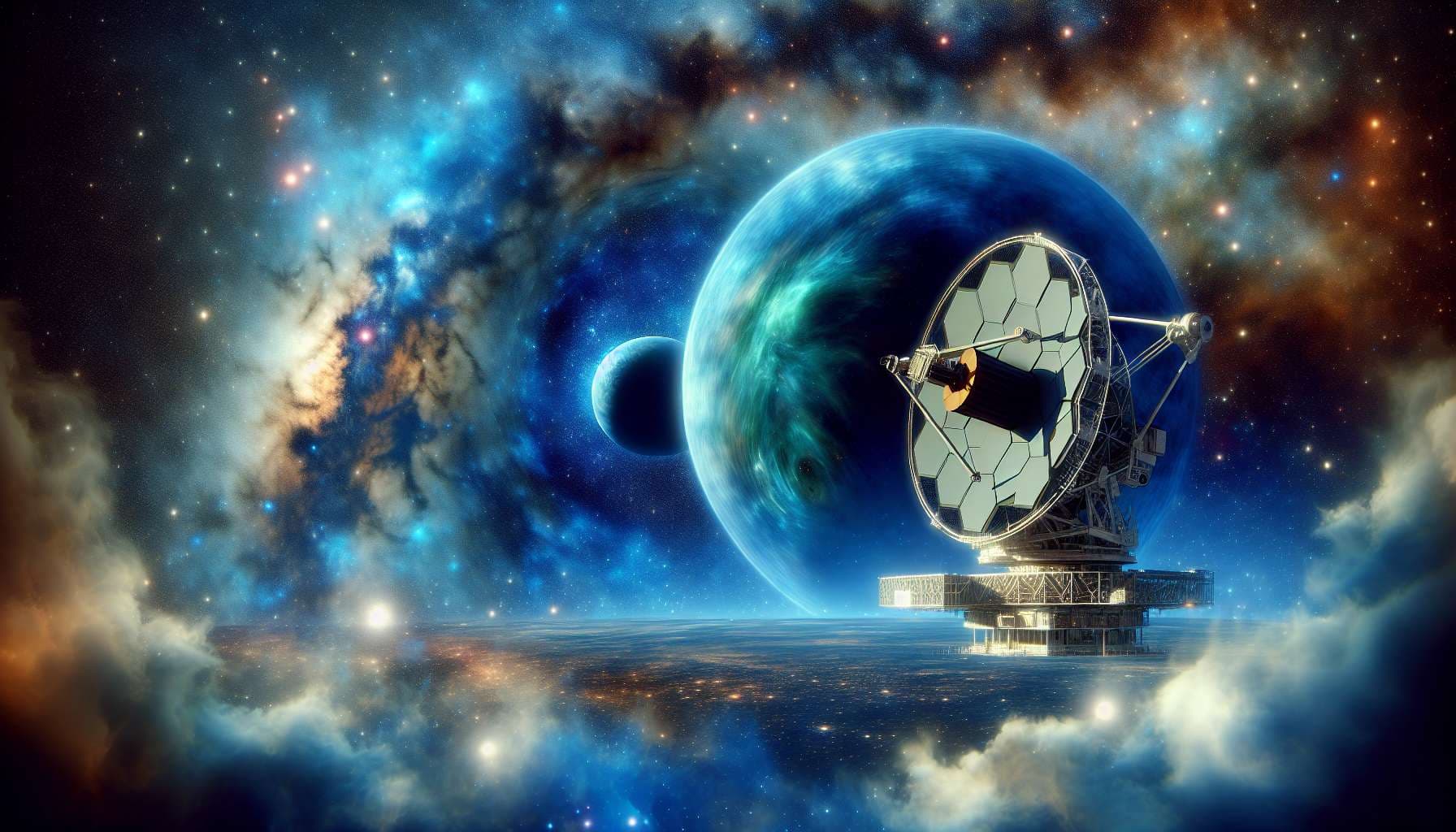
In early January 2024, multiple sources claimed that the James Webb Space Telescope has detected extraterrestrial life on an exoplanet, and that a paper is being withheld so as to achieve a higher standard of evidence than is typical for most papers.
This market will resolve to YES if, before December 31, 2025 at 11:59:59pm EST, a peer-reviewed paper is published stating that it likely non-human life has been detected in the Universe.
The paper must make the stronger claim that it is "likely that life exists," not merely that "biosignatures compatible with life" may exist. The claim may also be made due to radio signatures, but again the paper must state that the radio waves are transmitted by life, not merely compatible with life.
All claims must use the Webb Telescope's data as evidence and the claim must be credibly made by the operators or researchers using the telescope. The acknowledgment of non-human intelligence only present on Earth that was not detected by the telescope is insufficient, though that outcome is covered in other markets.
Otherwise, the market resolves to NO.
@KevinBlaw This is insufficient to resolve and was exactly the type of inconclusive finding the market was designed to address.
A Reddit rumour mentions dimethyl sulfide (DMS), and through that it is somewhat obvious that this is about the JWST observations from September 2023 and after, about the exoplanet K2-18b.
NASA sitting on a paper waiting for better information? In some sense yes, for the MIRI device of JWST is supposed to watch K2-18b this month, giving more detailed spectral information.
It's hard to say what their forthcoming paper would claim, life or a biosignature, and that is somewhat unrelated to the observations. They have made PR mistakes before and may be more cautious now. Maybe the current ≈10% is about right.
@scellus Myself, I don't see how one could make the claim that "life exists on another planet" without actually seeing the life, as in photographs in some wavelength of the specific organisms. But I'm not the one who would be making the claim.
Just because there are gases in the atmosphere doesn't mean that life exists there. It would be enough for a "proponderance of the evidence" that would result in a judgment in a civil suit, but not "beyond a reasonable doubt" that papers require.
Ultimately I think this Webb observation will end up the same way that non-human intelligence on Earth is right now. Non-human intelligence has such overwhelming evidence that it's clearly "more likely than not," but there are still other less likely coincidences that could explain some of the evidence. It will be difficult to get the Webb observations past the point where some yet-to-be-discovered process could still produce the observed gases, even if the only known way to produce them now is life.
@SteveSokolowski Yes I mostly agree on potential JWST observations, although there seems to be unstable gas combinations that would be hard to explain without life.
@scellus Agreed. But over the past few months what I think has happened is that society in general is turning out to be dramatically resistant to the idea that life is everywhere, that the evidence is becoming irrefutable, and that humans never were alone or anywhere close to being the most intelligent beings around.
Entire religions are built upon the premise that humans are special in God's eyes. These people simply will not consider that not only are humans a speck in the grand scheme of things, there are probably an infinite number of planets with bacteria, as well an infinite number of Gods doing things we can't fathom, of which probably zero care about humans and any of which could kill every single human if it did care.
So people, including a lot of otherwise smart people on Manifold, continue to cling on with a last gasp to this stigma that any discussion of other life is a crazy conspiracy theory. And, that life on other planets or in other dimensions or in other forms is so utterly and ridiculously improbable that it would require an unattainably extraordinarily high level of evidence.
And, for this reason, I agree with you that the telescope will most likely detect such gases, and that it will be life. However, though that detection will be stronger evidence than what is required for any other scientific discovery, people who cling to the notion that it is somehow extraordinary for there to be other life will never dare to publish a paper making the assertion that humans are not alone.
And that is a sad state of affairs in what we call "science."
@SteveSokolowski In don't have insight to last few months, and it may vary place by place, but the isn't the general trend for the last few decades been that extraterrestial life is taken more and more seriously, at least among scientists? Now there's even serious talk about technosignatures, not only exobiology, and panspermia is again at least a somewhat acceptable hypothesis.
But it's true that on issues hard to resolve, there are societal fashions that vary, based on nothing substantial. Religions have their own cosmologies, but eventually they adapt. May be hard for some religions. ;)
@ChrisCameron There were at least three scientists on various shows on British TV who stated variations of this claim. There are also people in the US who are saying that NASA is sitting on the paper because they want a high standard of evidence before release.
You can search for the credentials of these scientists to evaluate their trustworthiness, if you want. Whether you believe them is up to the market to decide.
@SteveSokolowski So what are the claims there? Carbon dioxide, something else? I couldn’t find anything recent by quick googling.